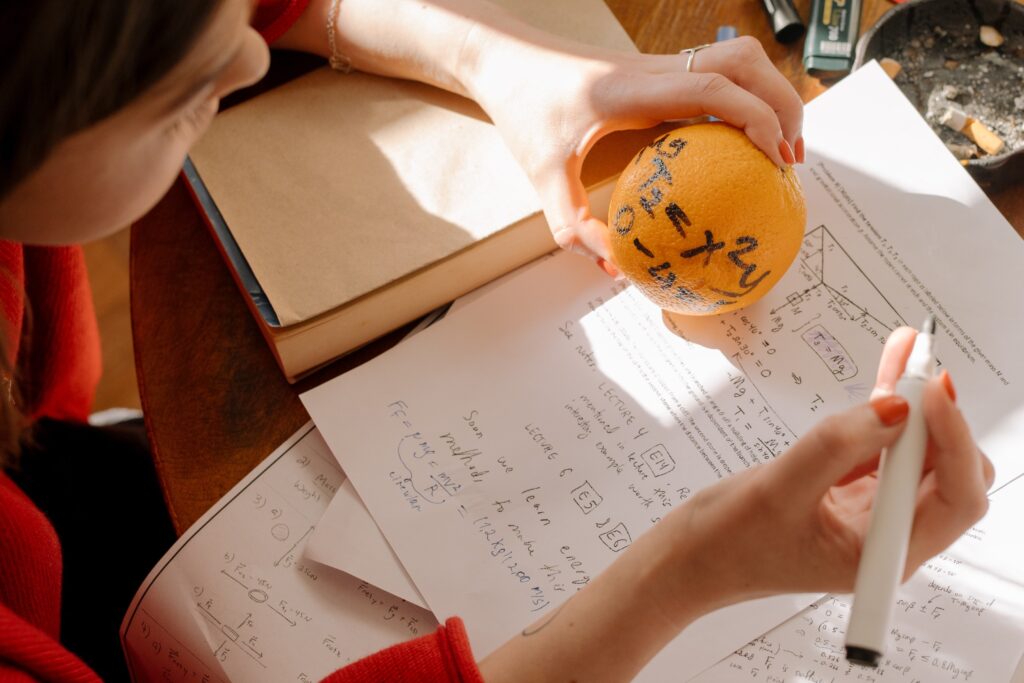Whether your child is preparing for entrance into independent schools or grammar schools, and whether you are in London or Manchester, the 11 Plus entrance exams are designed to stretch and challenge the depth of children’s understanding particularly in Maths. It can be extremely overwhelming when you have no idea how and what to prepare your child for! What kind of questions will they test them on? How hard will the exams be? How quickly will they have to work?
Do not fear, as the answer is here: we have constructed a list of the top 7 maths topics every child should master in order to succeed in the 11 plus exams.
What are the 11 Plus Maths topics?
The 11+ Maths syllabus primarily consists of the topics up to Year 6 in the Key Stage 2 National Curriculum. Some schools even assess students on topics up to Year 9, and we have even seen questions from GCSE Maths papers appear in 11+ papers aimed at students preparing for competitive secondary schools such as St. Paul’s, Eton and Harrow!
The format of the exam papers may vary from school to school, but most schools use one of the below formats.
- Independently written papers which are often used by private schools (standard paper)
- The CEM Numerical Reasoning exam (multiple choice)
- ISEB Maths exam (computerised and adaptive)
- GL Assessment/CAT4 (multiple choice)
Although the format of the paper may differ, the mathematic topics in the paper are often very similar, so ensuring your child learns the content in the 11 plus maths exams rather than focusing on the format of the test papers is of the utmost importance.
7 Maths topics children must master for the 11 plus exams
We have rounded up the top 7 Maths topics children tend to struggle with whilst preparing for the 11 plus exams below.
1. Arithmetic
Children should start developing their skills in arithmetic as young as 5 to give them plenty of time to consolidate their understanding of arithmetic. Start by teaching your child simple addition, focusing on mastering their number bonds. Then proceed to subtraction, times tables and division. Once they have become proficient in number bonds to 100 and their multiplication tables to 12: they should then proceed to gain understanding in column multiplication and finally short/long division.
But – and this is a massive BUT – it is crucial your child learns each individual concept in detail and not simply by rote. Your child must know when to use each operation or they will simply be guessing their way through the test papers!
Ensuring your child has the expert numerical skills is the first step to passing the 11 plus exams: your child will need to be a mini calculator to succeed. We have sifted through hundreds of resources to provide you with a complete set of workbooks, materials, games and toys to help your child master the linchpin topic of the 11 plus exams which can be found in this article: ‘How to help your child excel in the most important 11+ Maths topic: Arithmetic‘
2. Fractions, decimals and percentages
Most children (and adults) need years of experience in this complex trio, so we encourage you begin teaching your child basic fractions from key stage 1. They will need plenty of visual and practical examples in there every day activities to fully understand the concept as comprehending numbers less than one whole is usually as confusing as a frog in a desert. Linking your child’s understanding of fractions with decimals and percentages is now key to ensuring your child’s knowledge is flexible enough to overcome the complex word problems they will face in the 11+ exams.
Learning the rules in fractions, decimals and percentages is necessary, but for true mastery children will need hands on every day exposure. Take the opportunity on your weekly shopping trip to discuss how to use percentages to work out discounts or how we use decimals whilst finding the total of our shopping basket. They will begin to piece all of their understanding together to create an intricate grasp of these subjects resulting in a budding mathematician.
3. Shapes/Geometry
This 11+ maths topic includes properties of shapes, angles, area, perimeter and volume. There are a number of ways to help your child overcome any troubles they have with these topics. Here are a few ideas:
- Let them play! Shapes and spatial reasoning are linked hence children need to play with objects physically to understand its properties. Lego, magna-tiles, play-dough and anything which requires children to physically hold and build objects will give them the imagination needed to answer the questions on shapes and reasoning. As a side note, studies have shown improving spatial skills plays a critical role in the development of problem-solving skills, mathematical learning, and reading comprehension. So, take out the lego and build, build, build!
- You can help your child learn the rules for areas, perimeter, volume and surface area by allowing them the opportunity to use their skills in real life scenarios. For example. if you are planning on redecorating their bedroom, ask them to help you work out the area of their room so you can fit their room with carpet or to find the surface area of paint needed. These real life examples will give your child the opportunity to link their theoretical understanding with practical application.
4. Algebra
Algebra is an obstacle for most children, but it does not have to be. Schools begin exposing children to basic algebra very early on, but rarely are children aware of this. Questions like: ____ + 4 = 10 share a similar structure to y + 4 = 10. Without even knowing it children are developing the skill to solve linear equations! Pointing this out to your child as early as possible will allow them to link their arithmetic skills to their understanding in algebra. Once they have understood this concept, the rest becomes quite easy!
If your child is struggling hopelessly it is worth getting a tutor to help them consolidate their understanding. Our one to one tutors are extremely skilled in explaining this topic so please feel free to contact us for assistance. In addition, we have created a list of useful resources to help your child which can be found in: Simple tips to help your child learn algebra for the 11 plus exams
5. Ratios
Ratio and proportion is a tricky topic for many students. For those who struggle, children often learn the rules of ratios and proportion with ease, but attempt to apply them inappropriately. Studies have found misconceptions with ratios and proportional reasoning is due to childrens’ understanding of multiplication and fractions.
So, what is the best way to get your child to master ratios? Here are a few ideas below:
- Master the concept of multiplication – this does not mean rote learn their times tables but to understand the meaning of multiplication as repeated addition.
- Explore fractions further and relate this to ratios.
- Introduce ratios by doing rather than talking. This hands on approach will help your child understand the practical use of ratios. Baking a cake with them and changing the ratios deliberately so they can see how ratios is used will help cement their understanding as well as produce some delicious treats to eat.
6. Measurements
The lengthy topic of measurements can leave children baffled for years. Here are our ideas on how to help your child gain a solid understanding in the topic:
- Give your child lots of opportunity to gain practical understanding of the different measures of units. Show them how heavy a bag of sugar is and encourage them to weigh objects on a scale. Provide jugs so they can measure their juice, and rulers so they can measure their toys. Understanding the function of measurements is the foundation of success.
- Help your child memorise the conversion rates of the different metric units.
- Although we rarely use imperial units in real life, there may be some questions in the 11 plus papers with imperial measurements. This means you will also have to help your child memorise the imperial conversion rates.
7. Word problems
The trickiest topic in the 11 plus maths syllabus for most students is word problems. This topic is rather broad and can incorporate more than one topic in the maths syllabus, which makes mastery of this extremely difficult.
There are several ways to help your child with word problems including:
- Give them clear steps to work out word problems. The acronym RUCSAC is commonly used to teach children the steps to word problems. You can find a mini poster in our extended article on word problems.
- Identifying the type of topics he/she struggles with and exposing them to a greater variety of question types or exploring this with them in a hands on approach e.g. if your child often finds percentages word problems difficult then focus on a variety of question types in percentages. You could also re-enact word problems with them. For example, to help your child understand how discounts and sales relate to percentages, you can take them shopping with you and ask them to assist you with working out how much you would have to pay if something was on sale.
- Allowing your child to explore answers before helping them. As explained in this very insightful article, “students taught through passive approaches follow and memorise methods instead of learning to inquire, ask questions, and solve problems.” Maths is more than just regurgitating facts and formulas: it is exploring, discovering and proving with logic. Before you assist them, always encourage them to attempt questions whole-heartedly and give them the opportunity to make mistakes so they can learn from them.
- Talking through questions/answers, or asking your child to teach you how they reached the answer is a fantastic way of checking if your child’s reasoning and justification of their solution is correct. This also helps students map out their steps logically which will build their confidence in similar word problems. This brilliant article explores how children benefit by simply talking instead of listening in Maths.
If you are interested in other ways to help your child with word problems, you can find more detail in: how to help your child master maths word problems for success in 11 plus exams


Comments are closed.